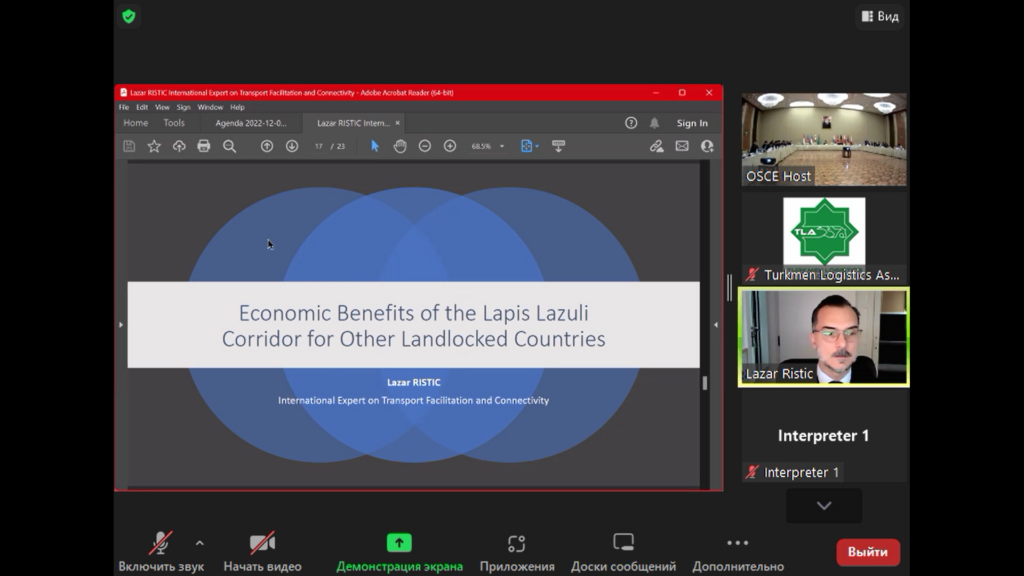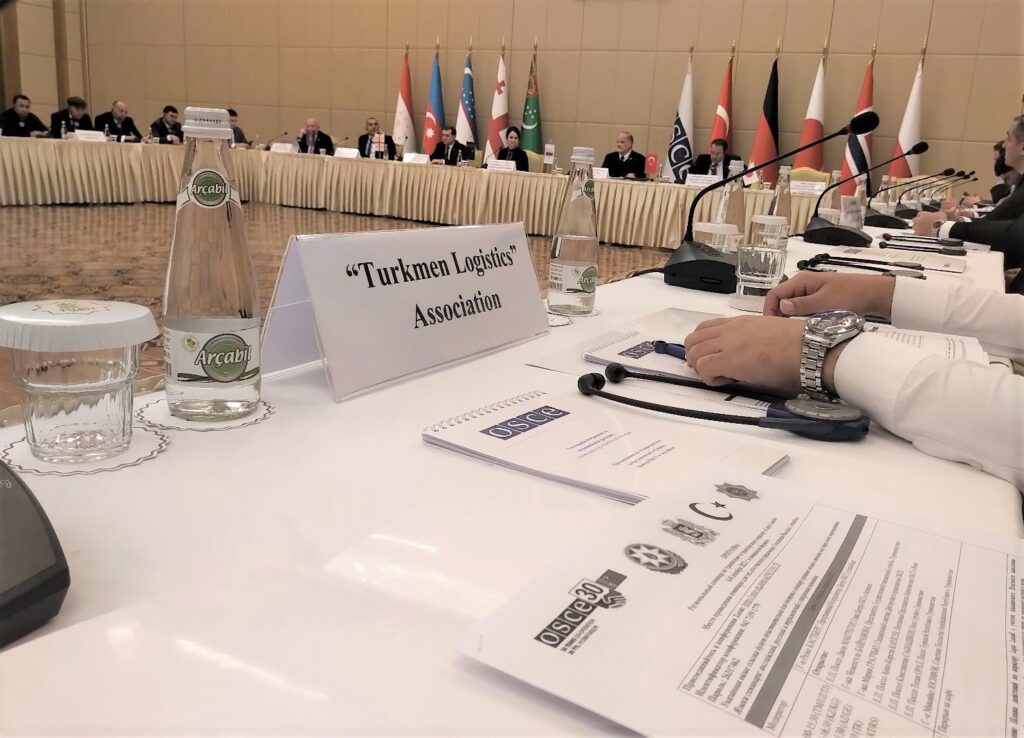Last week, the OSCE Center in Ashgabat held a three-day regional seminar on the Lapis Lazuli transit and transport corridor in a hybrid format.
The forum was attended by representatives of ministries and departments of Turkmenistan, whose activities are related to transport processes, the State Customs Service of Turkmenistan reports.
Participants from Azerbaijan, Georgia, Georgia, Turkey, Tajikistan and Uzbekistan joined online.
During the seminar, Lazar Ristic, an international expert on simplification of transport procedures and connectivity, presented the Strategy and Action Plan for the Development of the ITC in support of the countries that signed the agreement on transit and transport along the Lapis Lazuli. The strategy is aimed at stepping up regional economic integration and transport potential, optimizing geographical distances through the rational use of all modes of transport.
The speaker from the State Customs Service spoke about the steps Turkmenistan is taking to develop transit corridors passing through the country.
In particular, Turkmenistan is consistently working on further digitalization of customs procedures in order to improýe the competitiveness of transit corridors and attract additional transit cargo flows. Steps are being taken to further simplify the mechanism of customs control and accelerate customs clearance.
The seminar was also attended by the diplomatic missions of Georgia, Turkiye and Azerbaijan in Turkmenistan, representatives of the UN International Center for Transport Diplomacy, the Association “Turkmen Logistics”.
The agreement on the creation of a multimodal Lapis Lazuli corridor was signed in 2017. It extends along the route connecting Afghanistan with Turkmenistan’s Turkmenbashi Caspian port, Baku, the Georgian Black Sea ports of Poti and Batumi, and Turkiye with access to Europe.///nCa, 13 December 2022 (photo source – Turkmen Logistics)

